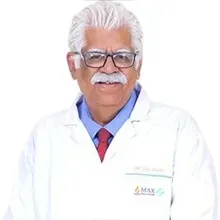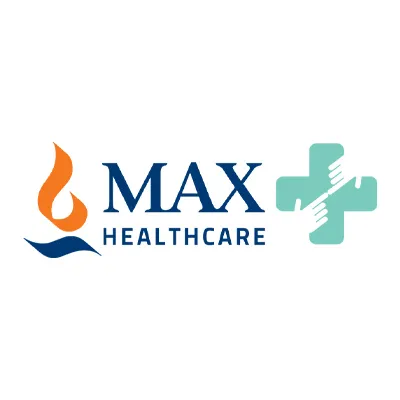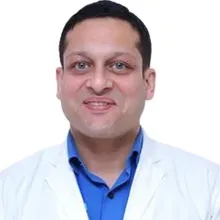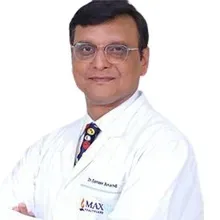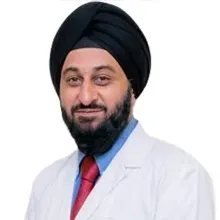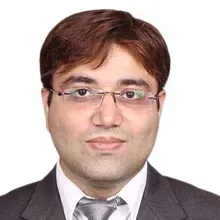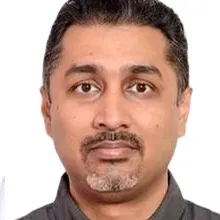About Doctor DR. H.N. BAJAJ
About
Dr. H.N. Bajaj is a skilled spine surgeon with more than 36 years of expertise. His areas of interest in research include spinal pain, spinal infections, spinal cancer, disc surgery, and spinal
stenosis. He belongs to the Delhi Orthopaedic Association and the Association of Spine Surgeons of India. In 1983, Dr. H.N. Bajaj graduated from the University of Mysore in India with a degree in medicine. His diploma (1985) and master's degree (1986) were both earned at Mangalore University in Karnataka, India. Dr. H.N. Bajaj is fluent in Hindi and English. Dr. H. N. Bajaj began his professional career at Manipal, from where he was given the chance to go to the UK, Australia, and Malaysia. He had seven years of international exposure as a result. After returning from his overseas trip in 2007, he significantly transformed the surgical care at the Indian Spinal Injuries Centre in Vasant Kunj thanks to his tireless efforts in patient care.
Work Experience
36 Years of Experience
Dr. H. N. Bajaj attended Kasturba Medical College in Manipal to study medicine. He earned both an MS and a Diploma in Orthopaedics. Dr. H. N. Bajaj began his professional career at Manipal, from where he was given the chance to go to the UK, Australia, and Malaysia. His earnest, diligent efforts in patient care led to a significant improvement in the surgical approach used at the Indian Spinal Injuries Centre, Vasant Kunj. He made the anterior approach popular for treating complicated spine issues, and he actively backed implant fixation in the TB of the spine. Following that, he joined Max Healthcare as the department's chief spine surgeon in the orthopedics and joint replacement surgery division. Some of his professional highlights include:
-
Orthopedic Surgeon at Indian Spinal Injuries Centre, 1998–2007
-
Chief Spinal Surgeon and HOD Orthopedics at Max Healthcare, Saket, 2007–2016
Associated with Hospitals
-
Max Super Speciality Hospital, Saket, New Delhi
-
Max Super Specialty Hospital, Gurgaon
List of Treatments
Dr. H. N. Bajaj is offering the following treatment procedures:
-
Kyphosis Treatment: Excessive forward rounding of the upper back is known as kyphosis. Kyphosis in older people is frequently brought on by the spinal bones' weakening, which leads to their compression or cracking. Surgery is seldom necessary to address kyphosis. The spine's curvature only needs to be corrected in rare, extreme circumstances.
-
Anterior Cervical Discectomy: A damaged intervertebral disc in the neck is removed during an anterior cervical discectomy utilizing a surgical technique from the front of the neck. To guarantee spinal stability, an anterior cervical discectomy is frequently combined with techniques known as fusion and fixation.
-
Cervical Corpectomy: A cervical corpectomy is used to remove one or more vertebrae from the cervical spine (neck). The vertebral body, which is located at the front of the vertebra, is removed during this procedure. The area of bone that encases and shields the spinal cord is also retained.
-
Degenerative Spine Disorders: Degenerative spine diseases cause the spine's natural structure and function to gradually deteriorate over time. They may result from tumors, infections, or arthritis, but aging is typically a factor in their development.
-
Artificial Disc Replacement: In artificial disc replacement, the prosthetic, or artificial disc, is placed in place of the worn or damaged disc material between the vertebrae.
-
Arthritis and Pain Management: Arthritis is the medical term for swelling or joint inflammation. It encompasses more than 100 ailments that have an impact on connective tissues, joints, and surrounding tissues. Surgery for arthritis can aid in repairing or replacing a damaged joint. By doing this, it can ease discomfort and enhance the performance of the damaged joint.
-
Joint Replacement Surgery: In this surgery, parts of an arthritic or diseased joint are surgically removed and replaced with prosthetic devices made of metal, plastic, or ceramic during a total joint replacement. The prosthesis is intended to mimic the motion of a healthy, normal joint.
-
Arthrodesis: During an arthrodesis, an orthopedic surgeon physically straightens out the injured joint by removing the cartilage and stabilizing the bone so that the bones can heal together.
-
Deformity Correction using Growth Modulation: Growth modulation involves modifying or changing the typical development patterns of growth. Surgical correction or alteration of bone that has grown wrongly as a result of a disease or condition is often done with a combination of growth modulation procedures.
-
Lower Femoral Osteotomy: In a lower femoral osteotomy, the end of the femur is surgically fractured, changing the form of the bone. The proximal (upper) end of the thigh bone, commonly known as the femur, is cut and aligned during this procedure.
-
Cosmetic Surgery: Cosmetic surgery, commonly known as plastic surgery, is performed to alter a person's appearance. For some, it may imply reshaping the body's contour and form, reducing wrinkles, or removing areas of hair loss.
-
Growth Plate Injuries in Children: Injuries at the growth plate are those where tissue forms towards the ends of long bones in children and adolescents. Treatment options include closed reduction, in which the clinician manipulates the bone with their hands to align and set it. Reduced openly. Surgery may be necessary for some growth plate injuries to realign and fix the bones.
Awards and Recognitions
Publications
-
"Knee Surgery," a book edited by Dr. Ashok Rajgopal, was released at the AAOS (American Academy of Orthopaedic Surgeons) meeting in New Orleans, USA.
Education and Training
-
MS in Orthopaedics, Mangalore University, Karnataka, India, 1986
-
Diploma in Orthopaedics, Mangalore University, Karnataka, India, 1985
-
MBBS, University Of Mysore, India, 1983
Trainings/Specializations
-
Orthopedic surgeon
-
Spine Surgeon (Ortho)
Membership
Registrations
Special Interest
 Associated with hospitals
Associated with hospitals
Envisioning the goals & paving the path to success for the organization.
Book Appoinment
Similar Doctors In Gurgaon
Envisioning the goals & paving the path to success for the organization.










